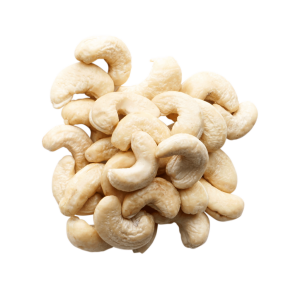BACKGROUND: Particulate matter (PM) is potentially harmful to health and related to genotoxic events, an increase in the number of hospitalizations and mortality from respiratory and cardiovascular diseases. The present study conducted the first characterization of elemental composition and polycyclic aromatic hydrocarbon (PAH) analysis of PM, as well as the biomonitoring of genotoxic activity associated to artisanal cashew nut roasting, an important economic and social activity worldwide. METHODS: The levels of PM2.5 and black carbon were also measured by gravimetric analysis and light reflectance. The elemental composition was determined using X-ray fluorescence spectrometry and PAH analysis was carried out by gas chromatography-mass spectrometry. Genotoxic activity was measured by the Tradescantia pallida micronucleus bioassay (Trad-MCN). Other biomarkers of DNA damage, such as nucleoplasmic bridges and nuclear fragments, were also quantified. RESULTS: The mean amount of PM2.5 accumulated in the filters (January 2124.2 µg/m(3); May 1022.2 µg/m(3); September 1291.9 µg/m(3)), black carbon (January 363.6 µg/m(3); May 70 µg/m(3); September 69.4 µg/m(3)) and concentrations of Al, Si, P, S, Cl, K, Ca, Ti, Cr, Mn, Fe, Ni, Cu, Zn, Se, Br and Pb were significantly higher than the non-exposed area. Biomass burning tracers K, Cl, and S were the major inorganic compounds found. Benzo[k]fluoranthene, indene[1,2,3-c,d]pyrene, benzo[ghi]perylene, phenanthrene and benzo[b]fluoranthene were the most abundant PAHs. Mean benzo[a]pyrene-equivalent carcinogenic power values showed a significant cancer risk. The Trad-MCN bioassay revealed an increase in micronucleus frequency, 2-7 times higher than the negative control and significantly higher in all the months analyzed, possibly related to the mutagenic PAHs found. CONCLUSIONS: This study demonstrated that artisanal cashew nut roasting is a serious occupational problem, with harmful effects on workersu05f3 health. Those involved in this activity are exposed to higher PM2.5 concentrations and to 12 PAHs considered potentially mutagenic and/or carcinogenic. The Trad-MCN with T. pallida was sensitive and efficient in evaluating the genotoxicity of the components and other nuclear alterations may be used as effective biomarkers of DNA damage.
